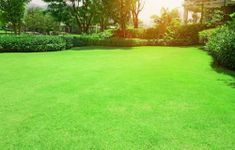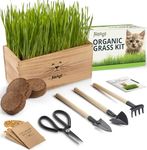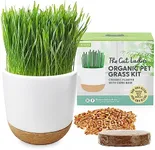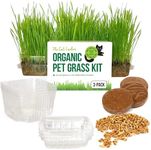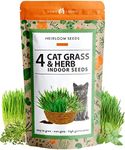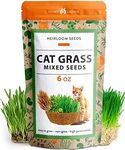Buying Guide for the Best Bermuda Seeds
Choosing the right Bermuda grass seeds can make a significant difference in the health and appearance of your lawn. Bermuda grass is known for its durability, heat tolerance, and ability to thrive in sunny areas. When selecting Bermuda seeds, it's important to consider several key specifications to ensure you get the best fit for your lawn's needs. Understanding these specifications will help you make an informed decision and achieve a lush, green lawn.Seed VarietyBermuda grass comes in various varieties, each with its own characteristics. Some varieties are more drought-tolerant, while others may have finer blades or a darker green color. It's important to choose a variety that matches your climate and lawn requirements. For example, if you live in a hot, dry area, a drought-tolerant variety would be ideal. If you prefer a finer texture, look for a variety with finer blades.
Germination RateThe germination rate indicates the percentage of seeds that are expected to sprout and grow. A higher germination rate means more seeds will successfully grow into grass. This is important for achieving a dense, even lawn. Germination rates typically range from 70% to 90%. For a lush lawn, aim for seeds with a germination rate of 85% or higher.
Seed CoatingSome Bermuda grass seeds come with a coating that can include nutrients, fungicides, or moisture-retaining substances. Seed coatings can improve germination rates and protect young seedlings. If you are planting in challenging conditions, such as poor soil or dry areas, coated seeds might be beneficial. However, if you have good soil and regular watering, uncoated seeds can also perform well.
PurityPurity refers to the percentage of the seed bag that is actually Bermuda grass seed, as opposed to other seeds or inert matter. Higher purity means fewer weeds and other grasses will compete with your Bermuda grass. Look for seeds with a purity of 95% or higher to ensure a clean, weed-free lawn.
Seed BlendSome Bermuda grass seed products are blends of different varieties. Blends can offer the benefits of multiple varieties, such as improved disease resistance and adaptability to different conditions. If you are unsure which single variety to choose, a blend might be a good option as it provides a balance of traits.
Climate AdaptabilityBermuda grass is generally well-suited to warm climates, but some varieties are better adapted to specific regions. Consider your local climate when choosing seeds. For example, if you live in a region with mild winters, select a variety that can withstand occasional cold snaps. Conversely, if you experience extremely hot summers, choose a variety known for its heat tolerance.







